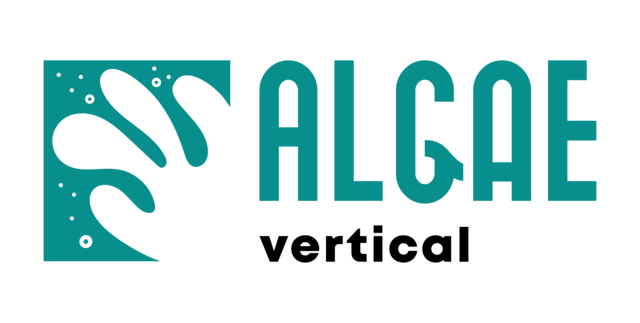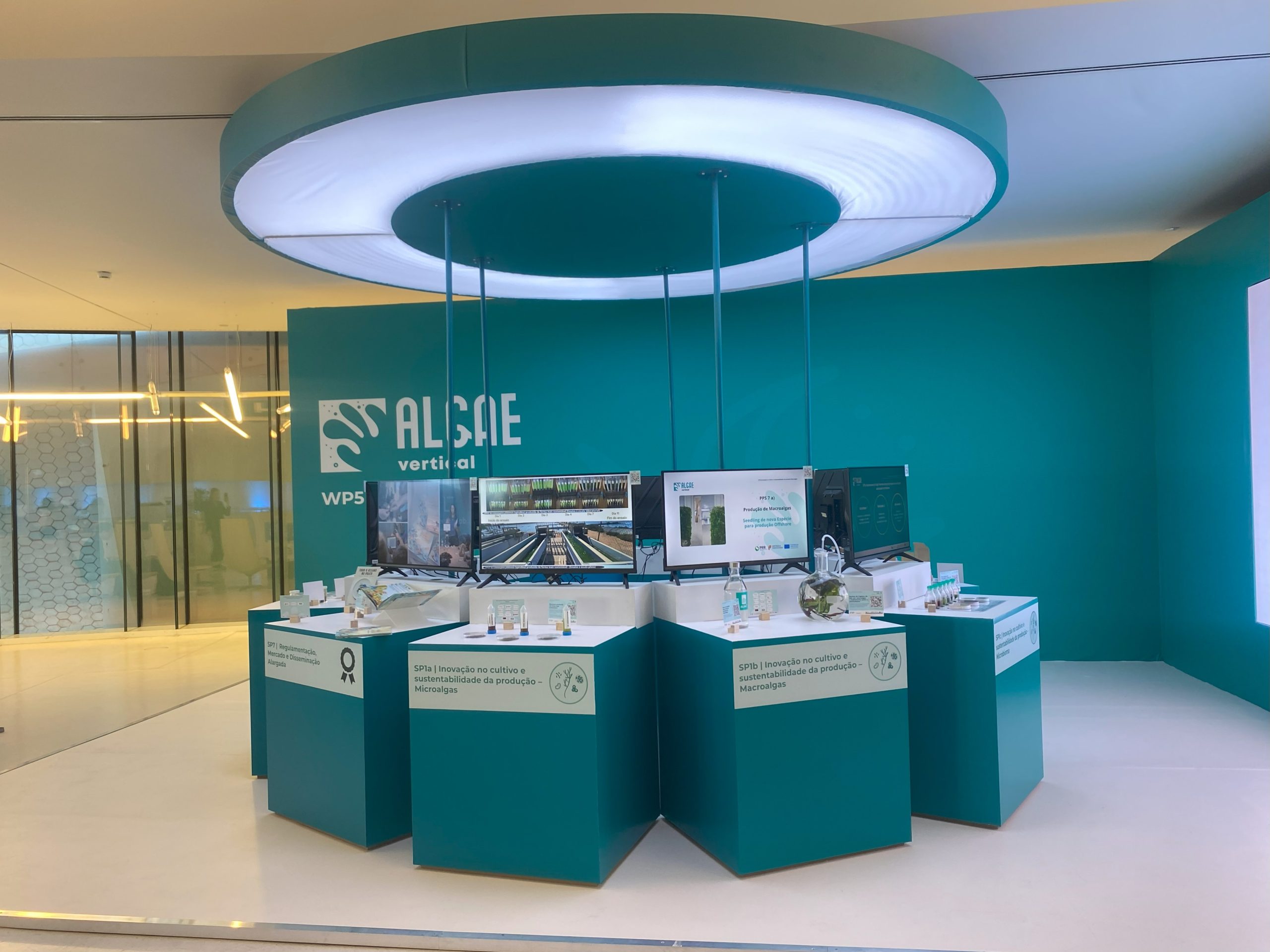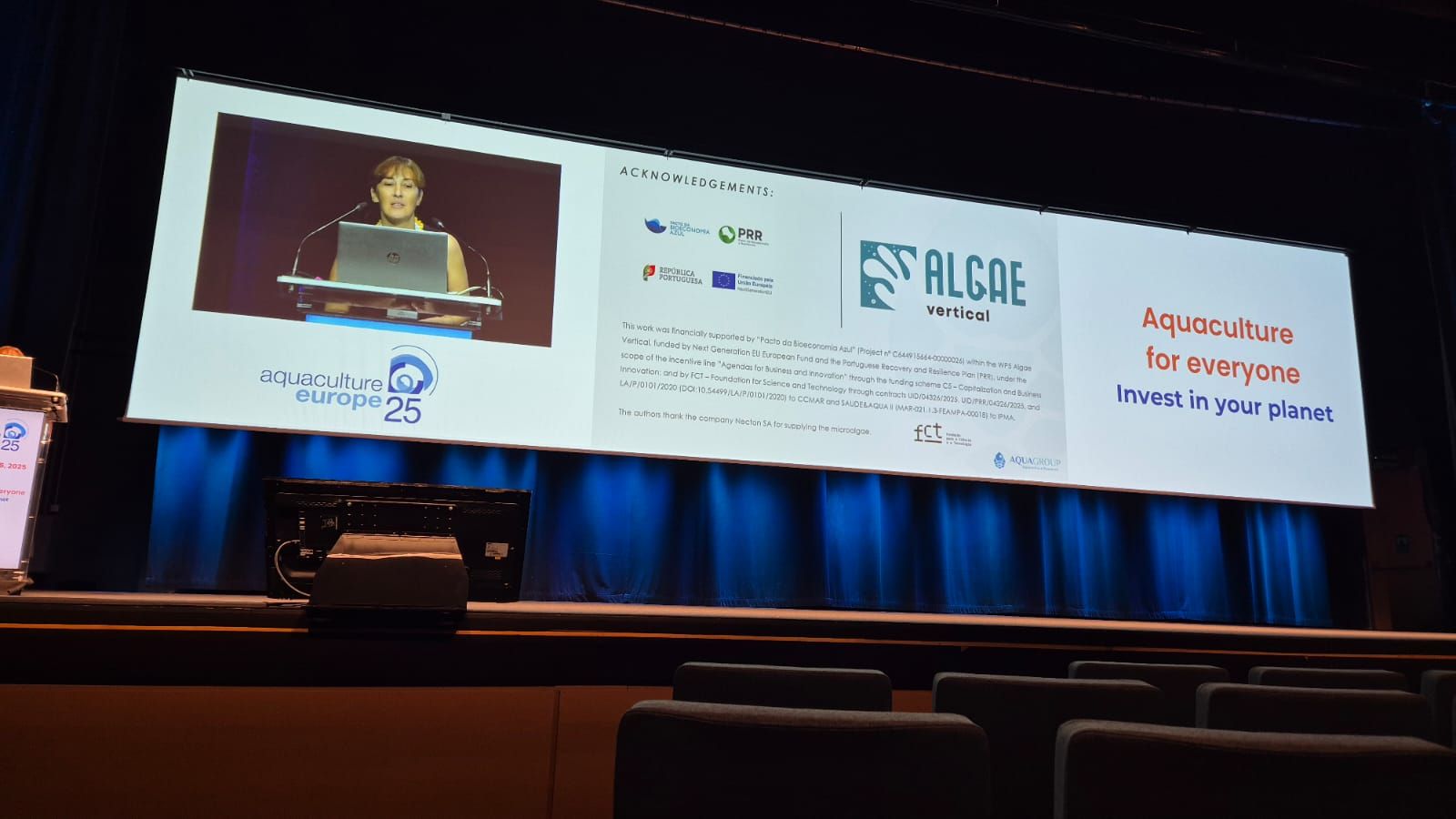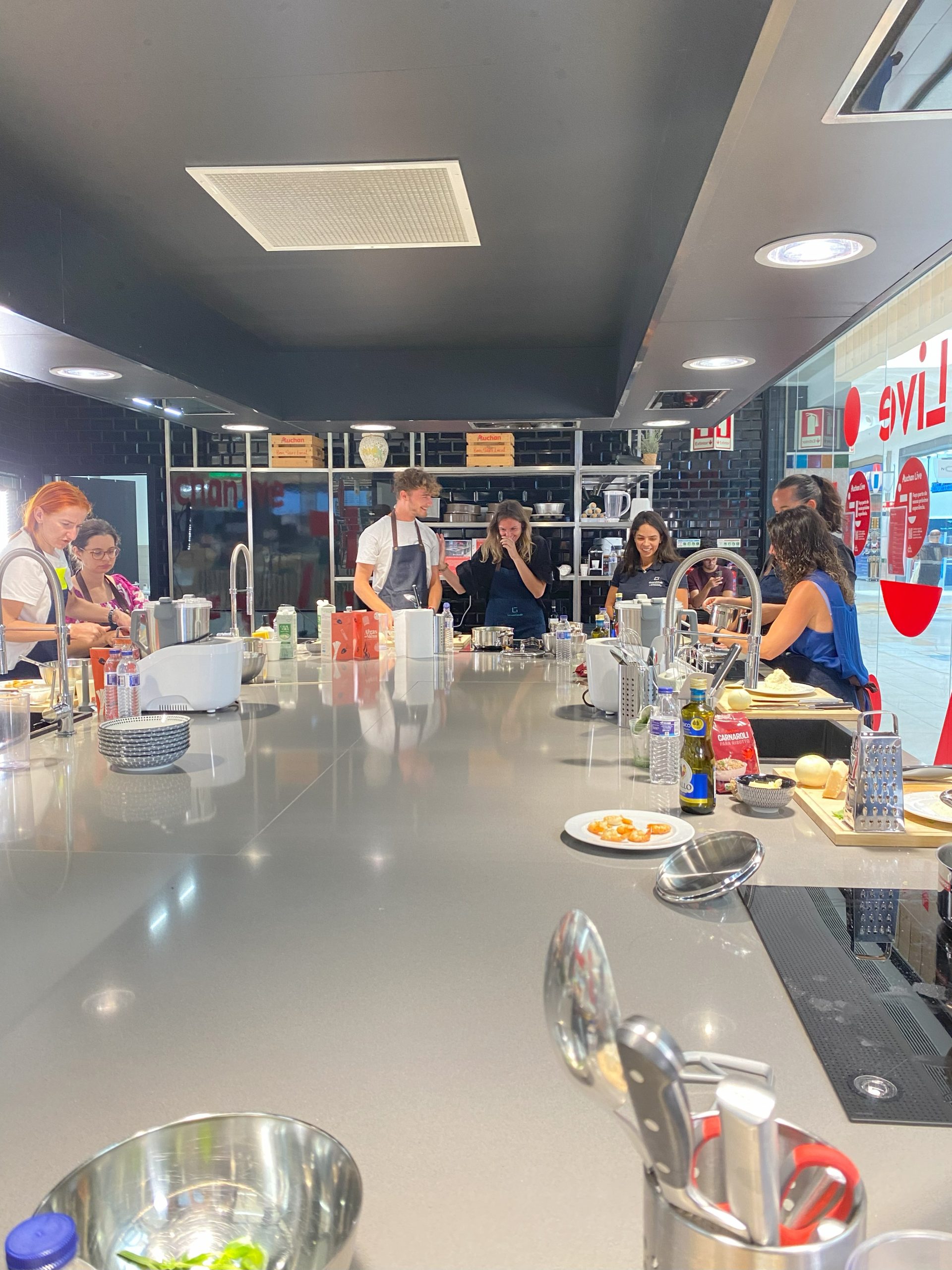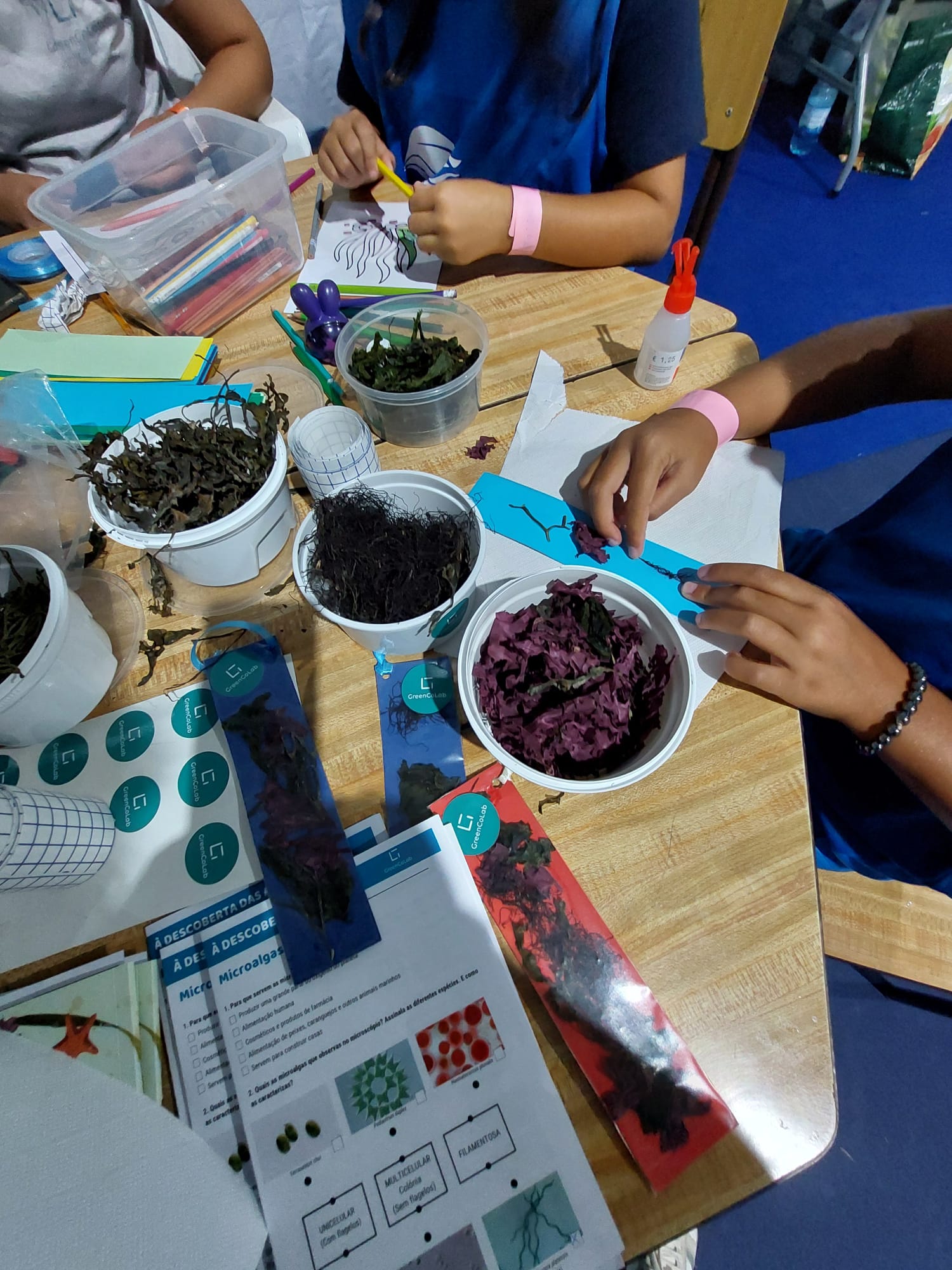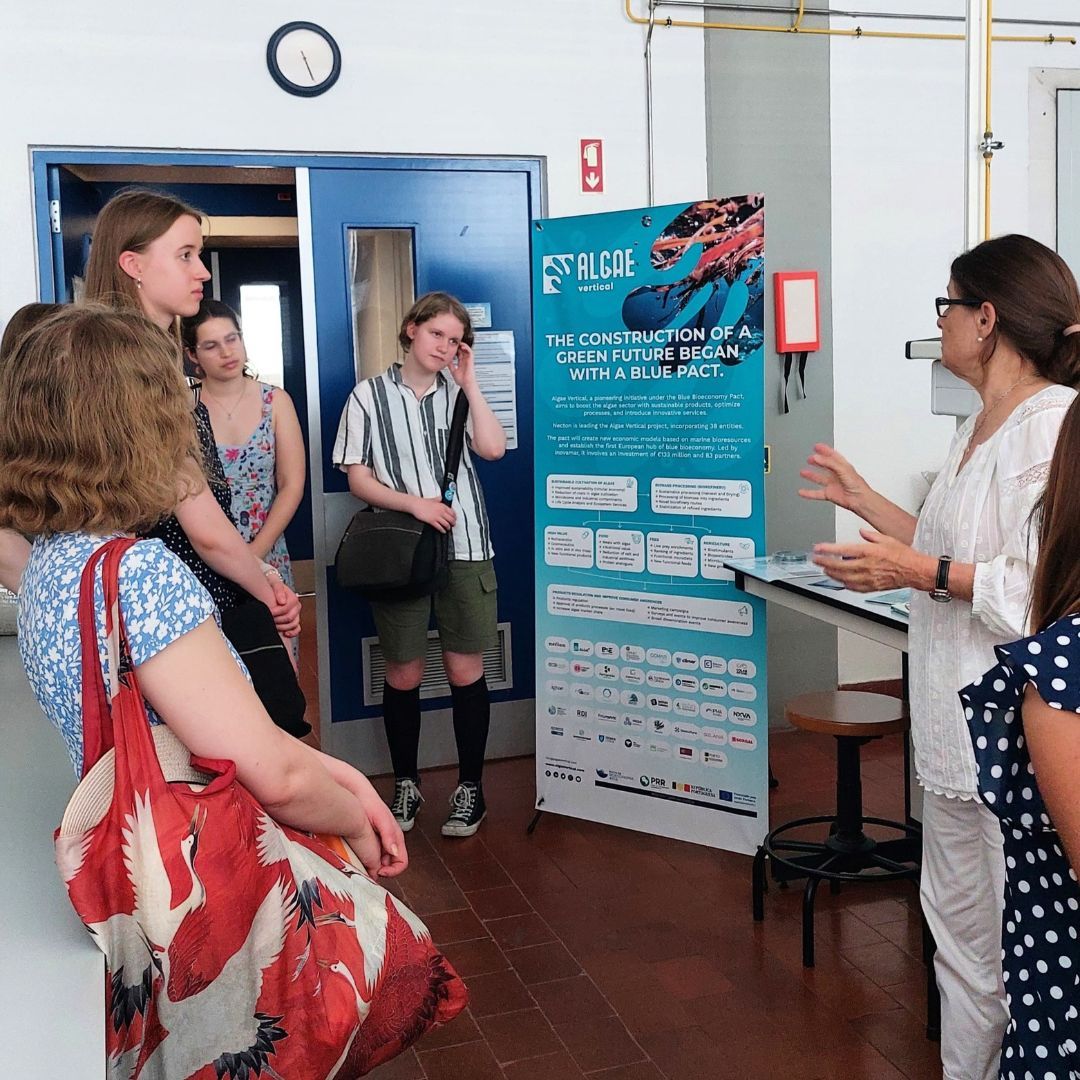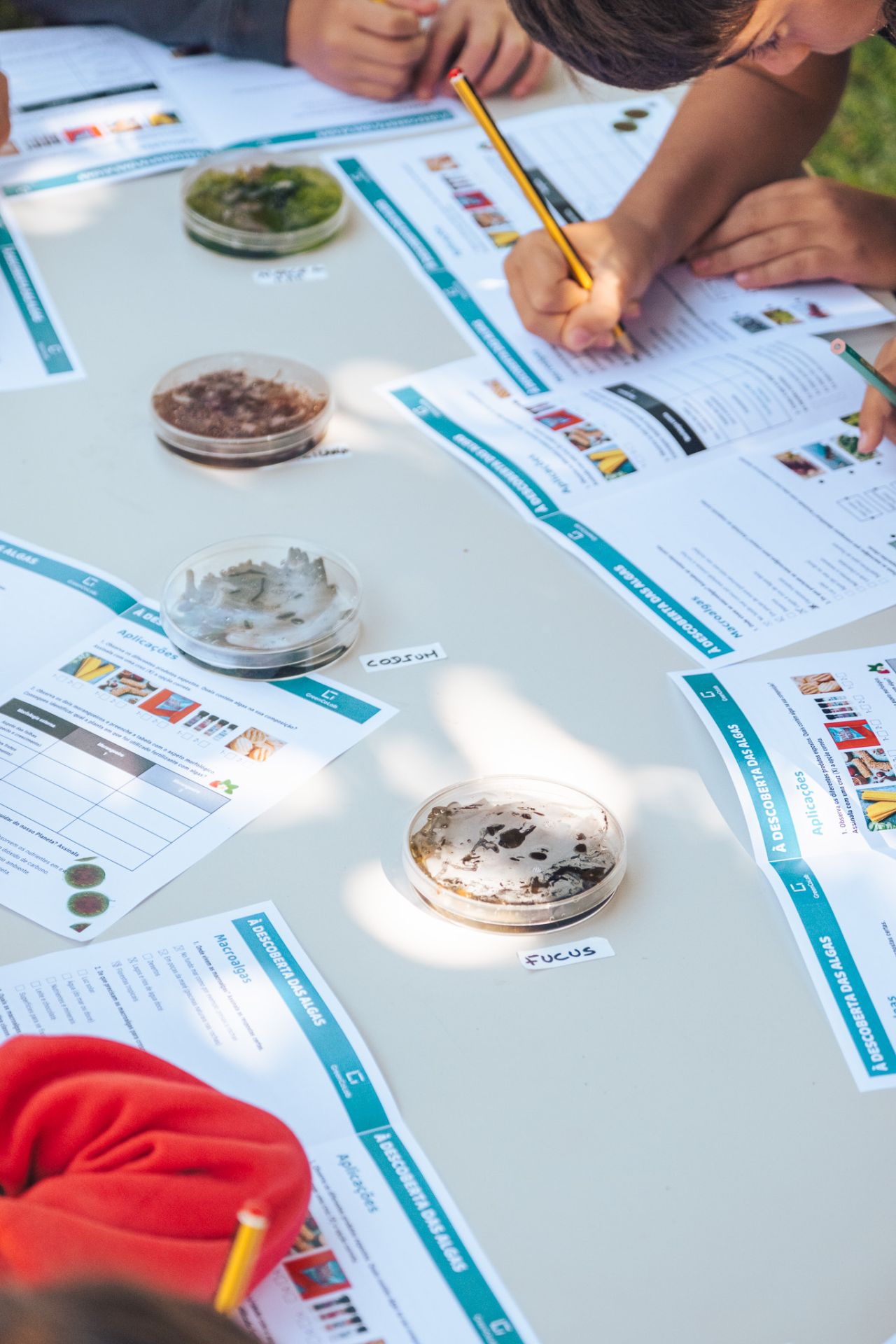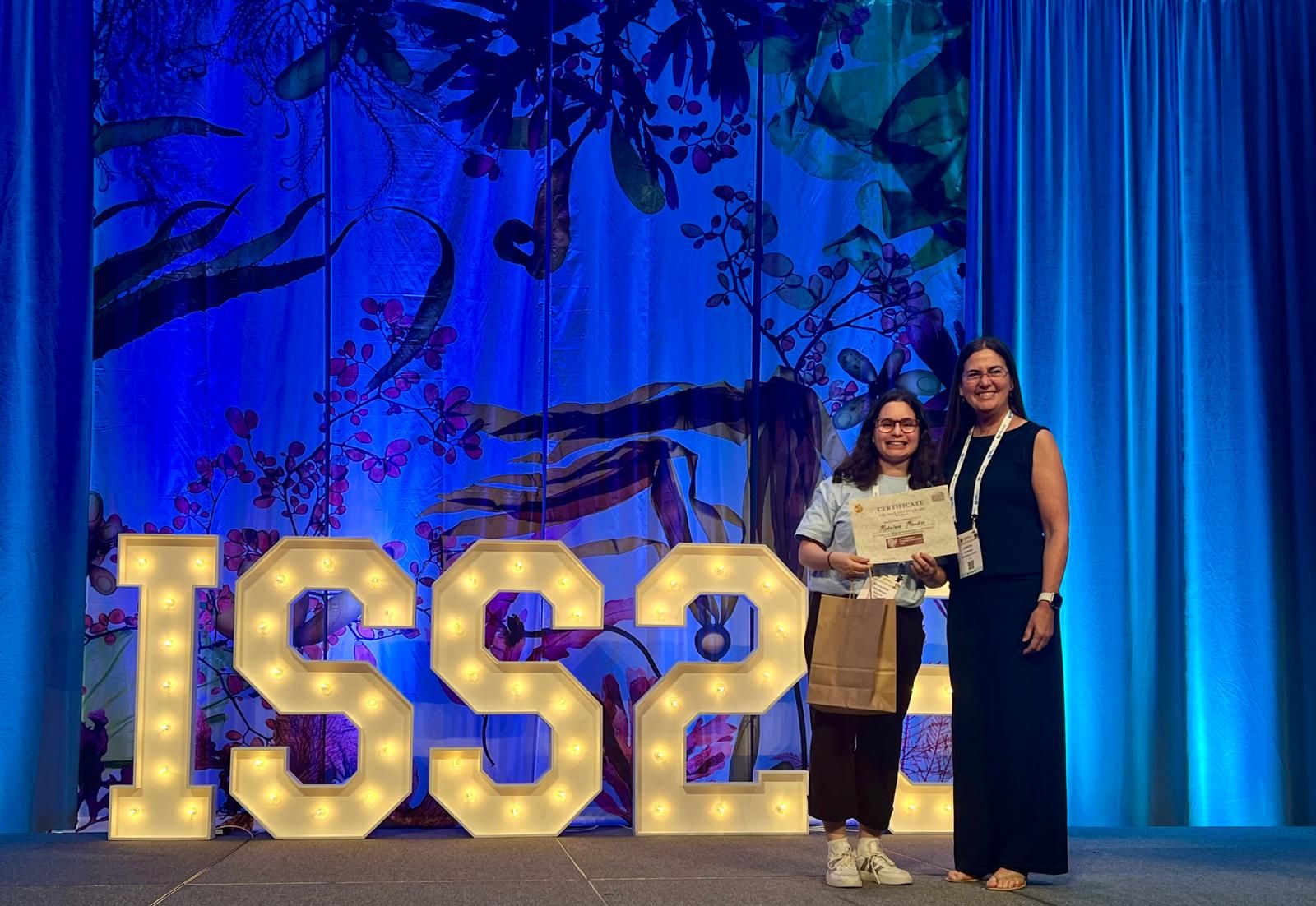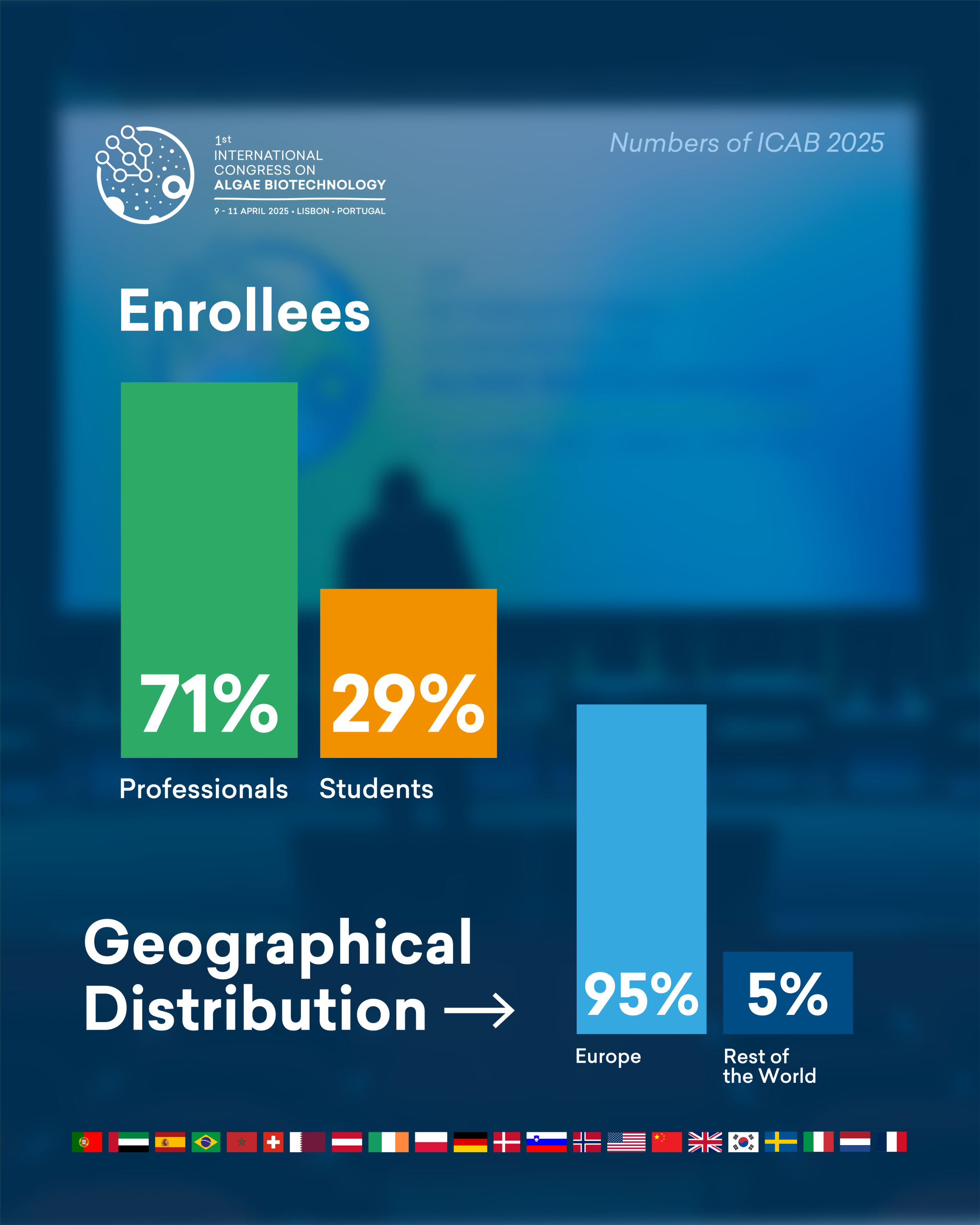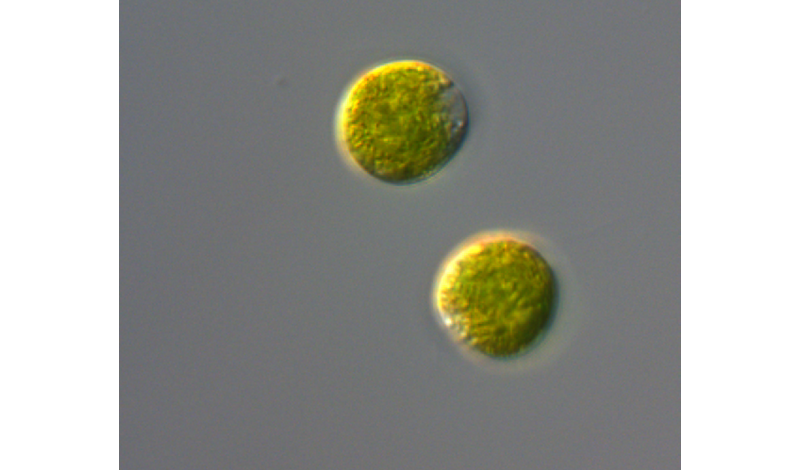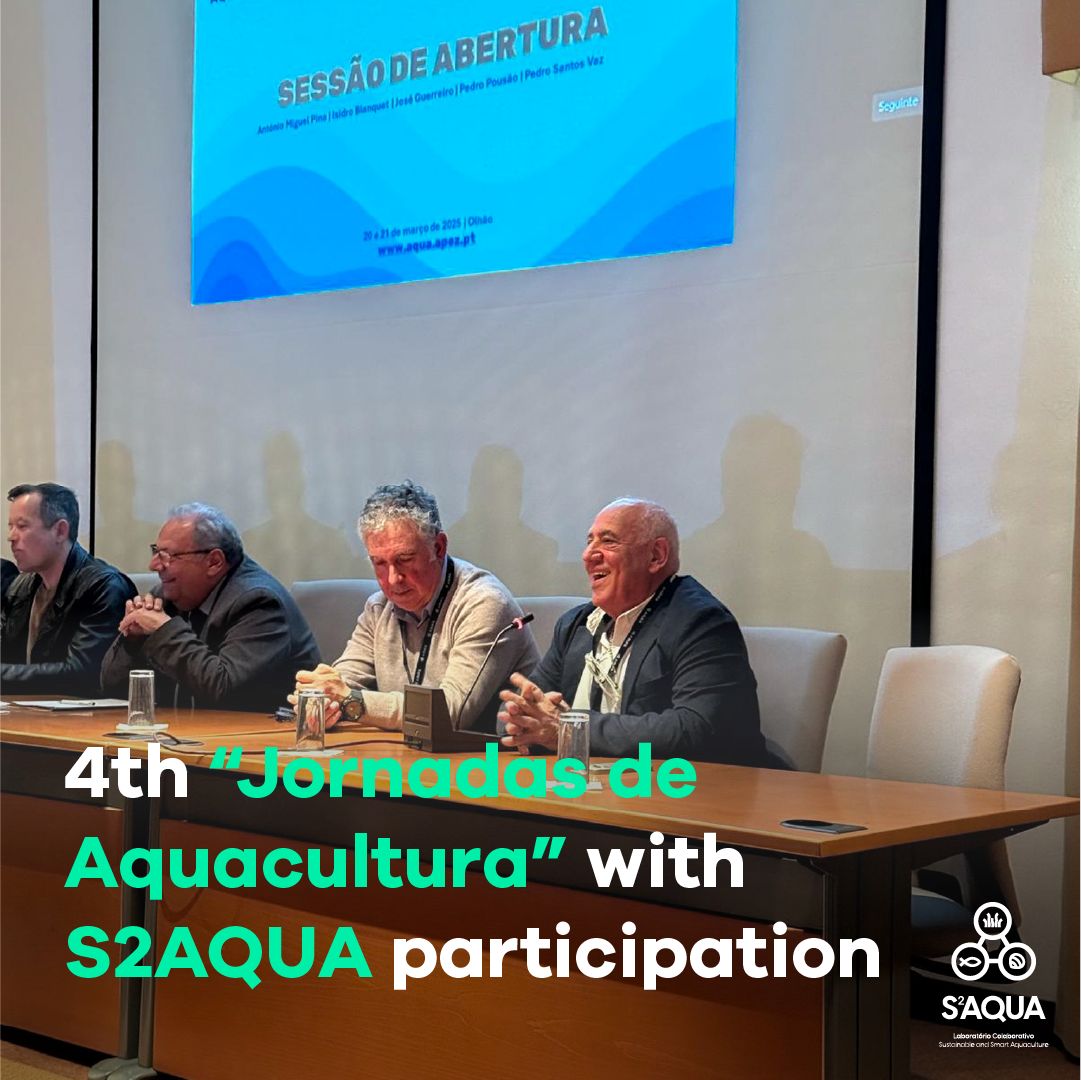On 25 September, the Port of Leixões, in Matosinhos, hosted the final event of the Blue Bioeconomy Pact, a representative showcase of the results achieved under the Blue Bioeconomy Project (PBA) led by Inovamar.
The meeting brought together 83 entities and the 11 verticals that comprise the Pact, providing a privileged space for networking and knowledge sharing among companies, research centres, and decision-makers.
The morning began with a Welcome Coffee, which encouraged initial contacts between participants. This was followed by the Opening Conference, during which José Soares dos Santos, Chairman of the General and Supervisory Board of Inovamar, delivered a speech reinforcing the strategic vision for the future of the blue bioeconomy. The morning ended with the PBA Round Table, dedicated to discussing the challenges and opportunities of the blue economy in Portugal.
The programme continued with a buffet lunch, where guests were able to taste seaweed-based food products provided by sub-projects 4a and 4b: seaweed pastries from Colab4Food, spirulina burgers from GreenCoLab and a digestive health smoothie with spirulina from Sumol+Compal.
During the afternoon, participants had the opportunity to visit 11 stands representing the Pact’s verticals, where the innovative products, processes, and services developed within the scope of the ongoing projects were presented. This provided an opportunity to learn about solutions that demonstrate the transformative potential of the blue bioeconomy in Portugal, with a focus on WP5 (Algae Vertical), led by Necton, which presented ten sub-projects dedicated to innovation in the algae sector.
